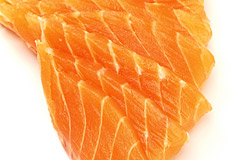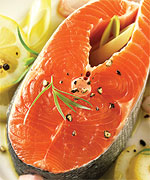 Don’t spend loads of money on detox packs or string yourself out on a disgusting syrup, juice and pepper concoction – commit to something which actually works…
Don’t spend loads of money on detox packs or string yourself out on a disgusting syrup, juice and pepper concoction – commit to something which actually works…
Every year we say we will stop eating when we feel full, or have one or two fewer glasses of wine but it never works.Well now the forced excess is all over and it’s time for punishing ourselves with the latest detox and weight loss fad. Or is it?
Losing that bloated sinking feeling and getting yourself back on track for 2011 could be much simpler than you realise.
We know the celebrities all endorse various detox/weight loss plans and we understand why. They are under a great amount of pressure to look good and above all, be the slimmest they can be, which prompts drastic measures in even the least neurotic and anxious of people. For those of us living our mundane (cough) everyday lives, such drastic action is not required: a few little tweaks can make all the difference.
Here are six quick tips to banish that ‘jabba the hutt’ feeling:
1. Make sure you get enough sleep. When you are tired your body wants the high energy, quick fix food which is very bad news for your blood sugar level and waistline. Tired people are also less likely to have the energy to exercise. Tired people always look older: perhaps the most effective inducement to get enough shut-eye. Need any more reasons?!
2. As above, high energy/sugar food is very bad news for you (unless you are a super-duper fit athlete who burns a gazillion calories a day). Eating high sugar foods sends you up into the stratosphere for about 20 minutes until you crash back down to earth and into the biscuit cupboard. We don’t need to give it up completely, just reduce portion size and be careful not to eat your treat after dinner as those calories will be going nowhere fast.
3. Raise your heart rate for at least 15 minutes a day. We all have some lonely exercise equipment or one of the many computer console exercise programs to hand for a quick endorphin boost, so requires no extra spenditure. It gives you a little extra energy to go about your business and you don’t have to trek to the gym to spend time with other sweaty people. Yuck.
4. Alcohol. We’re sorry to have to say this but if you want to feel better within a week, any delicious alcohol-based beverage is out. Alcohol is full of sugar. Wine is quite probably the healthiest of all the marketed beverages but still, as above, we know it is hard to restrict ourselves to just the one glass. So we advocate cutting it out for just a little while. Your liver will give thanks and you will very soon notice you are much less sluggish with better skin.
5. Fruit and veg. You may have heard the news, you may not have done, but here it is; we do not have to eat 5 portions of fruit or veg a day. Of course it is advisable to eat as much as you can without stressing or obsessing if for no other reason that by eating something green, you are not eating a big cake or pork pie. Fruit is nice as well. You may have forgotten how nice it is with all those sugar laden treats out there but if you manage to cut back your sugar intake you will rediscover just how naturally beautiful many fruits are. Try to eat the actual fruits instead of getting juice – the fibre helps slow the flow of sugar into your bloodstream.
6. Supplements. The most important are fish oil/omega 3 capsules which come with a side helping of Vitamin D – perfect for sharpening the old brain functions and making us feel less depressed about being mid-winter. There is no Vitamin D RDA and although we probably get enough help from the sun during summer, we need to supplement like crazy in winter. If you are over 50 you should be taking a Vitamin D supplement all year round. Vitamin D deficiency has been linked to all the old life threatening bad pennies of heart disease, diabetes and cancer and more research needs to be done to see exactly what deficient people are missing out on. As far as other vitamins are concerned: if you can manage a small daily dose of vitamin C, this will also help to reduce your chances of getting a bad cold.
See, not a massive change, but will help you start to feel loads better and you might be inspired to effect a bigger change in your lifestyle. It doesn’t take much to get your body back on track – our organs, especially our main detox organ – the marvellous liver – are very resilient and do their very best job with just a little help from us.



